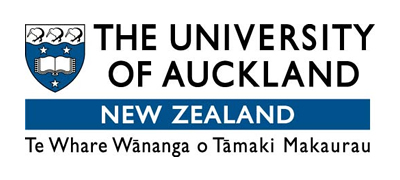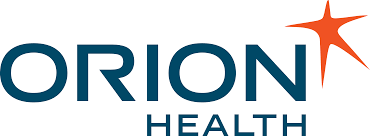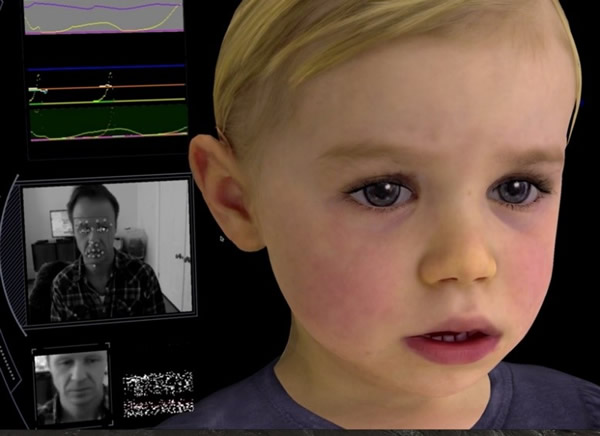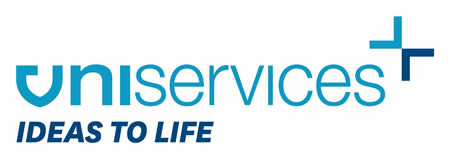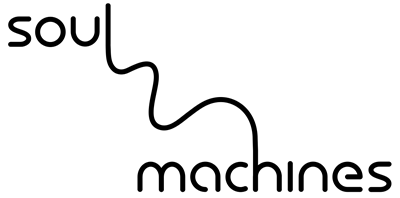2017 Awards Winners
The KiwiNet Awards celebrate heroes in research commercialisation — those individuals and organisations whose best practice approach is changing the innovation landscape in New Zealand. We congratulate the 2017 winners!
BNZ Supreme Award
This award celebrates the supreme entry which demonstrates overall excellence in all core areas of research commercialisation.
Professor Richard Furneaux, Institute Director of the Ferrier Research Institute, Victoria University of Wellington
Professor Richard Furneaux - Victoria University of Wellington
Carbohydrate chemistry delivers sweet success to NZ
The successful combination of Professor Richard Furneaux's scientific nous and entrepreneurial spirit has generated tens of millions of dollars of economic activity for New Zealand over the past 25 years—a direct result of his own, and his team's, research endeavours.
Starting out as a synthetic chemist, today Richard leads a team of 40 world-class scientists as Institute Director of the Ferrier Research Institute at Victoria University of Wellington. Innovations from this team include the first New Zealand-developed drug to gain registration since the 1980s and a breakthrough synthetic vaccine to treat cancer, allergies and autoimmune diseases.
Richard's passion for New Zealand means that he is always looking for ways in which science can add value to the country—whether it's starting up a new business (Avalia Immunotherapies and GlycoSyn), or collaborating with world-renowned scientists such as Professor Vern Schramm at Albert Einstein College of Medicine in New York, to deliver a significant portfolio of licensed pharmaceutical candidates which could potentially generate millions for the New Zealand economy. Richard was involved in the synthesis of forodesine hydrochloride, the active ingredient in anti-lymphoma drug Mundesine®, licensed by BioCryst Pharmaceuticals Inc. Mundesine® has just been approved in Japan, making it only the second New Zealand invented drug compound to become a registered drug product.
A mentor to many, Richard's work is well recognised and highly respected by his peers and the business community; he has inspired many to take up the challenge of commercialising scientific discoveries during his own career.
Norman Barry Foundation Emerging Innovator Award
This award recognises an upcoming entrepreneurial researcher who is making outstanding contributions to business innovation or is creating innovative businesses in New Zealand through technology licencing, start-up creation or by providing expertise to support business innovation.
Dr Geoff Rodgers, Associate Professor, Mechanical Engineering Department, University of Canterbury – with mechanical seismic dampers
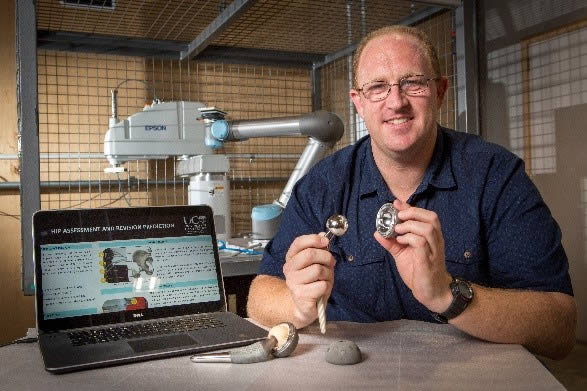
Dr Geoff Rodgers – with hip joint implants

Dr Geoff Rodgers – University of Canterbury
Seismic damping solutions for buildings and joint implant diagnostics
Dr Geoff Rodgers has a strong track record of working closely with industry to develop research outcomes with significant benefit to society. His research has applications in fields from seismic protection system for structures through to medical devices.
Geoff completed his PhD in seismic energy dissipation at the University of Canterbury in 2009, and then undertook a postdoctoral fellowship in medical device development at the University of Otago. In 2012 he returned to the University of Canterbury to take up an academic role, and is now an Associate Professor in the Mechanical Engineering Department.
Mechanical seismic dampers he developed to dissipate kinetic energy of seismic waves penetrating a building structure are in use in a low-damage Hospital complex in Christchurch. He is also working on other devices and deployment opportunities locally and internationally.
Geoff is also developing a new method for early detection of wear and tear of hip joint implants that monitors the sound vibrations transmitted from a patient's hip replacement implants. The acoustic emission monitoring system is a non-invasive sensing technique that records low-level vibrations emitted from the implant during patient motion that make it through tissue to the skin's surface.
By listening to the ultrasonic vibrations of the implant, it is possible to relate them to the condition of the implant, to help Orthopaedic surgeons predict impending failures and manage revision surgery. Early detection of wear and tear may provide opportunities for proactive intervention, reducing the severity of surgery and providing improved patient outcomes
Geoff's approach to technical development, across a range of industry fields, is always pragmatic and realistic, with uptake by industry being a major goal.
Baldwins Researcher Entrepreneur Award
This award recognises an entrepreneurial researcher who has made outstanding contributions to business innovation or has created innovative businesses in New Zealand through technology licencing, start-up creation or by providing expertise to support business innovation.
Professor Richard Furneaux, Institute Director of the Ferrier Research Institute, Victoria University of Wellington
Professor Richard Furneaux - Victoria University of Wellington
Carbohydrate chemistry delivers sweet success to NZ
The successful combination of Professor Richard Furneaux's scientific nous and entrepreneurial spirit has generated tens of millions of dollars of economic activity for New Zealand over the past 25 years—a direct result of his own, and his team's, research endeavours.
Starting out as a synthetic chemist, today Richard leads a team of 40 world-class scientists as Institute Director of the Ferrier Research Institute at Victoria University of Wellington. Innovations from this team include the first New Zealand-developed drug to gain registration since the 1980s and a breakthrough synthetic vaccine to treat cancer, allergies and autoimmune diseases.
Richard's passion for New Zealand means that he is always looking for ways in which science can add value to the country—whether it's starting up a new business (Avalia Immunotherapies and GlycoSyn), or collaborating with world-renowned scientists such as Professor Vern Schramm at Albert Einstein College of Medicine in New York, to deliver a significant portfolio of licensed pharmaceutical candidates which could potentially generate millions for the New Zealand economy. Richard was involved in the synthesis of forodesine hydrochloride, the active ingredient in anti-lymphoma drug Mundesine®, licensed by BioCryst Pharmaceuticals Inc. Mundesine® has just been approved in Japan, making it only the second New Zealand invented drug compound to become a registered drug product.
A mentor to many, Richard's work is well recognised and highly respected by his peers and the business community; he has inspired many to take up the challenge of commercialising scientific discoveries during his own career.
MinterEllisonRuddWatts Research & Business Partnership Award
This award recognises the deeply embedded working relationship between a research organisation and business that delivers significant commercial value for New Zealand.
University Of Auckland, Orion Health and Waitemata District Health Board: Precision Driven Health
Empowering data-driven healthcare solutions through a public-private research partnership
Precision Driven Health (PDH) is a seven-year NZ$38m research partnership which improves health outcomes through data science. It brings together Orion Health, Waitemata District Health Board and the University of Auckland with support from the Ministry of Business, Innovation and Employment. More commercial partners, healthcare providers and academic institutions will join as the partnership continues.
PDH positions New Zealand at the forefront of the global transformation in healthcare known as precision medicine, enabled when all information about an individual – including his or her genetic and social profile – is available as part of an electronic health record, accessible by clinicians in real time.
PDH's research programme harnesses New Zealand's unique combination of existing electronic healthcare data and world-class research capability to enable the development of data-driven healthcare solutions that can be applied globally. These findings are already a key contributor to the development of the product roadmaps of its commercial partners. In the case of Orion Health, PDH's research programme feeds directly into enabling its Amadeus precision medicine platform to manage and analyse large volumes of data from a variety of sources, and then present those insights back to healthcare professionals and consumers in real time.
PwC Commercial Deal Award
This award celebrates excellence in research commercialisation delivering outstanding innovation performance and the potential for generating significant economic impact for New Zealand.
University of Auckland and Uniservices: Soul Machines
Soul Machines: Humanizing the interface between man and machines
In 2011, UniServices and The University of Auckland used the Vice Chancellor's Strategic Hiring Fund to provide Auckland and MIT Alumnus Dr Mark Sagar, a two-time Academy Award winner, with the opportunity to leave his role at Weta Digital and return to the University.
Dr Sagar joined the Laboratory for Animate Technologies based in the Auckland Bioengineering Institute (ABI), University of Auckland. With his engineering and research team he developed two technologies: Facemaker designed to rapidly and reliably create avatar faces based on real human anatomy and physiology, and Baby X, the first avatar created by Dr. Mark Sagar. Baby X technology provides an emotional and social reasoning platform to existing and developing intelligence in the Artificial Intelligence industry.
In 2012 the first long term research contract was secured and UniServices invested in the technology. UniServices also managed research contracts, the patent portfolio and market validation. This enabled the lab to grow and develop both technologies.
In 2016, Hong Kong based Horizons Ventures was introduced to the technology on a tour of the University and was so impressed the team made the decision to invest almost immediately. A $7.5 million USD Series financing round led by Horizons Ventures with Iconiq Capital, the University's biggest Series A fund raising deal to date, launched Soul Machines, built on the technology behind Baby X.
As a result of the investment, Dr. Sagar became the CEO of Soul Machines and his research team now make up the newly formed Soul Machines brand. Auckland UniServices reassigned ownership of all Intellectual Property and associated research contracts to Soul Machines in return for a shareholding in the new company. Dr Sagar continues to head the Bioengineering Institute's Lab for Animate Technologies.
The investment will allow Soul Machines to deliver on its vision of humanizing technology to create intelligent and emotionally responsive, human-like avatars that augment and enrich the user experience for customers and markets adopting Artificial Intelligence-based platforms.





